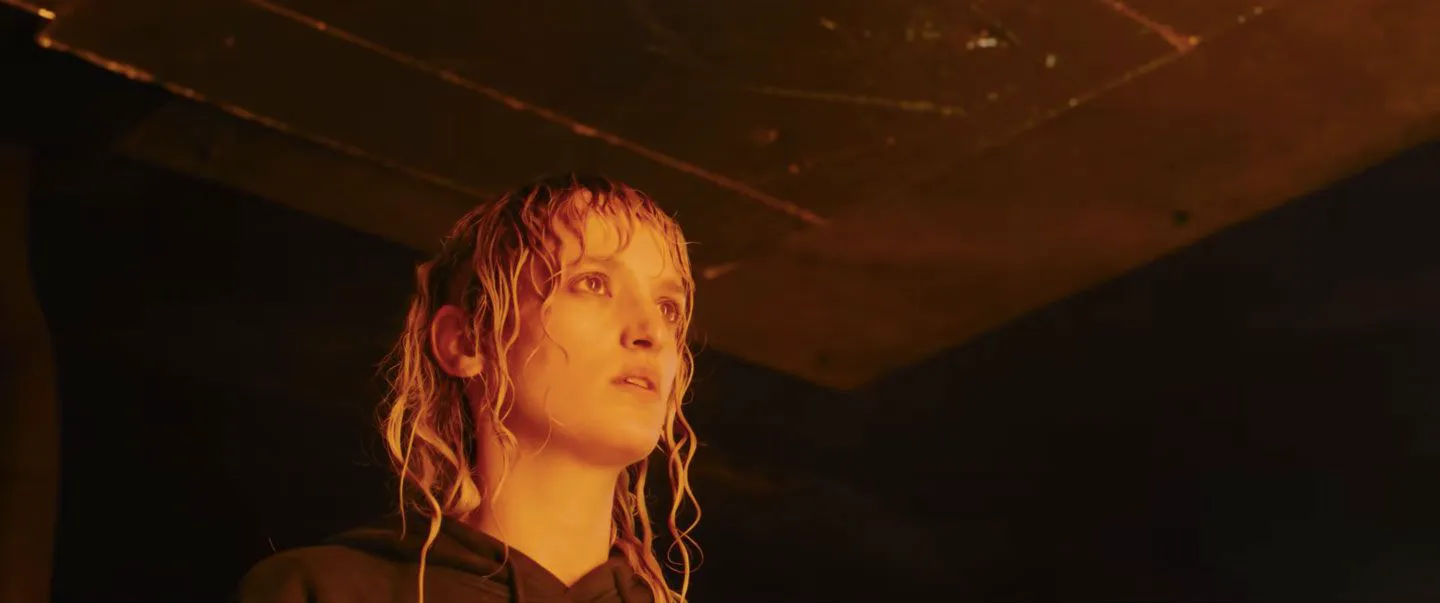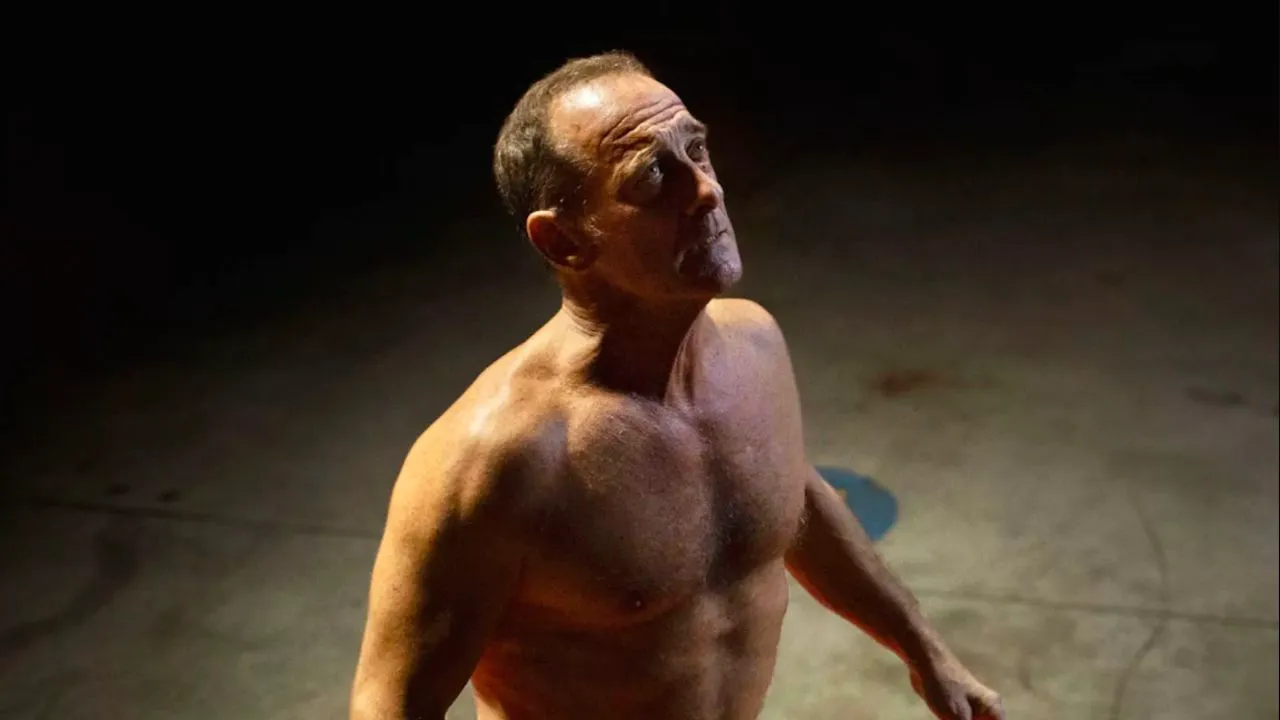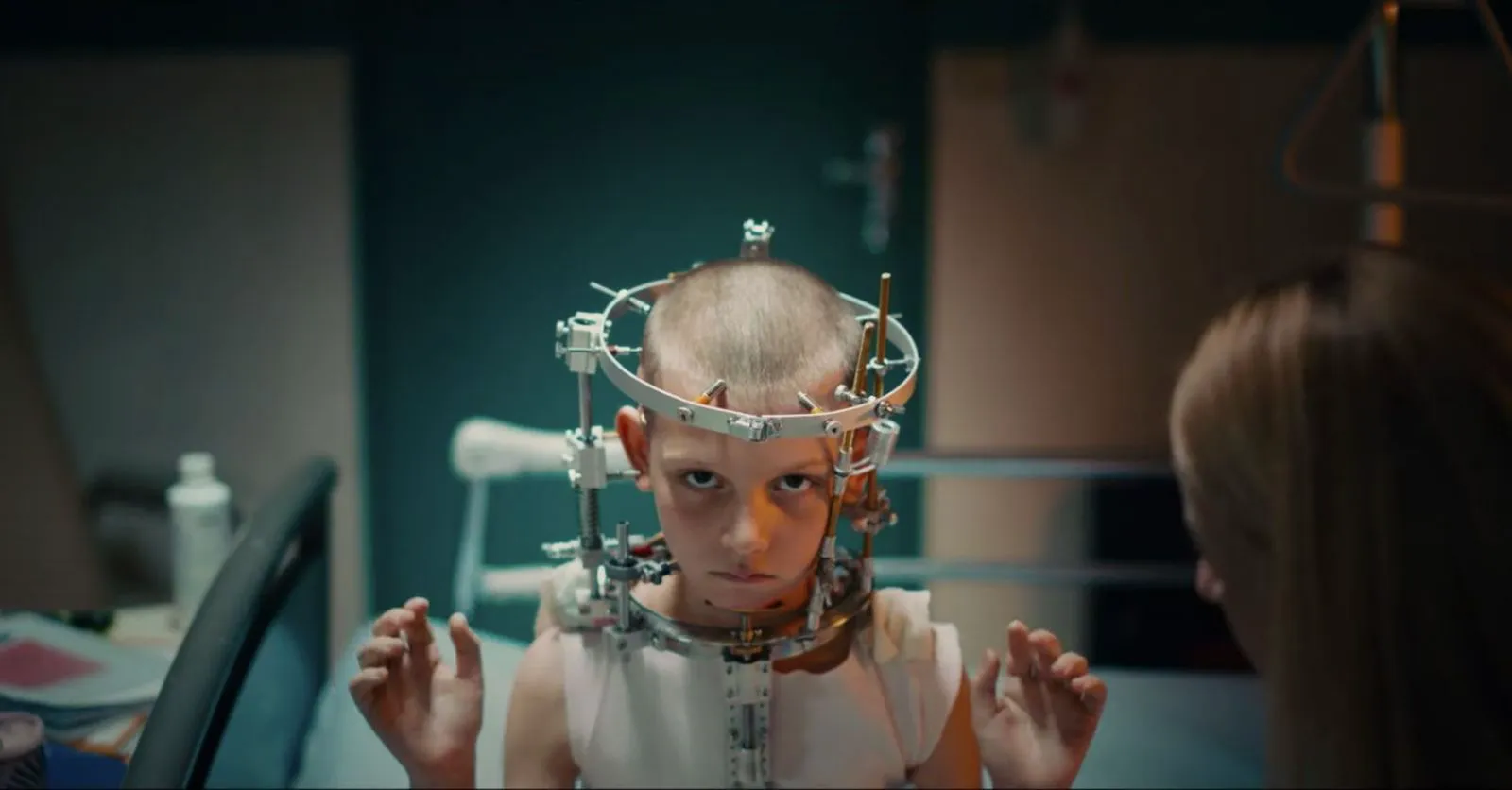Titane: A Body Horror Masterpiece or a Divisive Spectacle?
Alexia’s father completely ignores her existence, avoiding any contact despite living under the same roof. Consequently, Alexia develops a cold response to intimacy, with physical violence becoming her twisted love language. When this form of communication goes too far, Alexia is forced to flee, drastically altering her appearance: she shaves her head, binds her chest, and transforms into a boyish figure. By chance, Vincent, an aging firefighter, recognizes Alexia in this new guise as his son, who disappeared years ago. Needing a place to hide from the police, she plays along with his delusion.

Agathe Rousselle as Alexia in “Titane”
Following the premiere of “Titane,” French director Julia Ducournau was quickly hailed as the new Cronenberg. This is undoubtedly a welcome compliment, considering Ducournau’s admiration for the master of body horror, an influence evident in her directorial style. Like Cronenberg, Ducournau doesn’t spare the viewer, presenting a virtuoso sex scene with a car, severe physical injuries, and compulsive murders. As a reward for those who watch until the end, she offers a plunge into an ocean of unconditional love.
A Disturbing Yet Compelling Narrative

Vincent Lindon as Vincent in “Titane”
The film could be labeled shocking for its stark and uncompromising form, but it avoids violence for violence’s sake. Similar to her previous family horror film, “Raw,” Ducournau uses the torments of the flesh to establish a connection between the viewer and the protagonist. Alexia’s physical pain speaks volumes about her, conveying what no verbal dialogue could: the experience of rejection, the inability to accept and express love, all of which she literally carries within her until the very climax. The audience feels this viscerally, making the film so uncomfortable to watch that it becomes almost masochistically enjoyable at times. The true violence lies in the coldness and indifference of the father, which cripples the heroine from an early age; everything else is a consequence and an artistic expression of her internal state.

A scene from “Titane”
Vincent, grieving the loss of his son, tries to fill the emptiness consuming him from within, even if it means lying to himself and others. This fateful encounter helps the characters find what they seek: for Alexia, the love of a father figure; for Vincent, the opportunity to once again be a source of warmth and care.
Stellar Performances and Bold Choices

Agathe Rousselle as Alexia in “Titane”
The film’s gem is debutante Agathe Rousselle, who delivers an incredible performance in transforming her own body (somewhere, Christian Bale is nervously hiccuping). The task would seem daunting even for a seasoned actor: Ducournau takes Alexia through ten circles of hell, practically erasing gender boundaries and leading her to a literal rebirth. Despite her lack of experience, Rousselle manages to walk this path to the end alongside her character, which undoubtedly adds sincerity to the film. Rousselle’s co-star, French screen star Vincent Lindon (equivalent to Konstantin Khabensky in the Russian context), usually appears in social dramas or sweeping historical projects. He enthusiastically signed on for “Titane” because he wanted to step out of his comfort zone and took a one-way ticket. Seeing Lindon in a risky independent project was unusual, but now it’s hard to imagine anyone else in his place, as the actors blended so seamlessly on screen.
Such bold and boundary-shattering films will never be universally accepted. “Titane” will either be greatly loved or will cause viewers to walk out of the theater halfway through, never to return. One thing is certain: we are witnessing a future master of body horror, continuing and perfecting Cronenberg’s legacy.